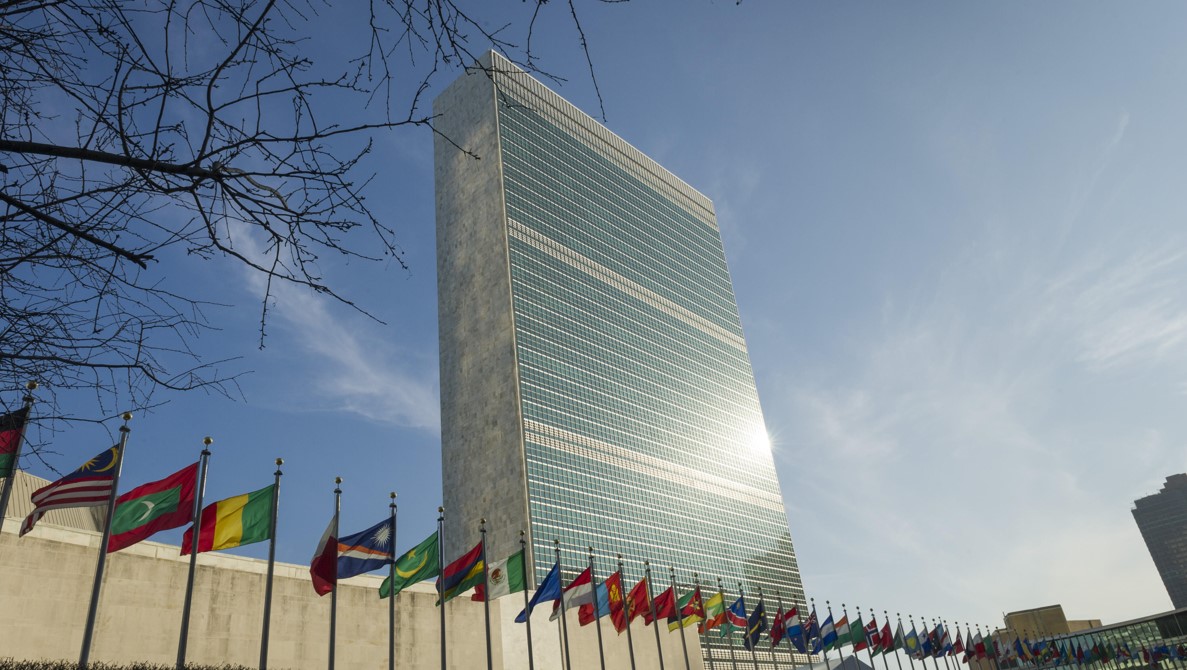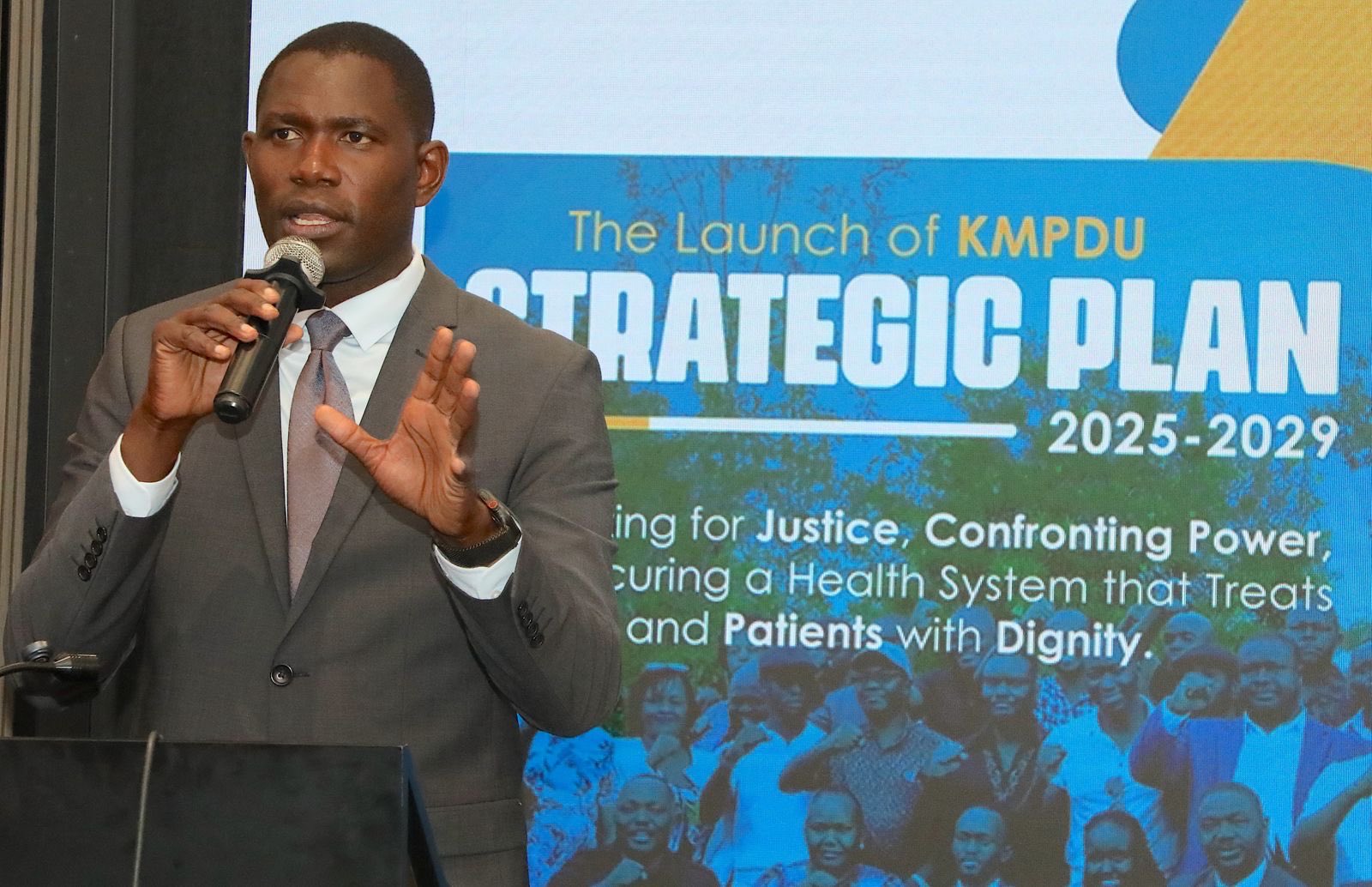UNFPA staff concerned over headquarters' relocation from New York to Nairobi

The United Nations Population Fund announced by 2025, a quarter of its New York headquarters staff will be relocating to Nairobi.
The United Nations Population Fund (UNFPA) has announced major organisational changes in the company.
UNFPA announced by 2025, a quarter of its New York headquarters staff will be relocating to Nairobi.
More To Read
- High-rise living in Nairobi’s Pipeline estate is stressful: How men and women cope
- Nairobi, Kiambu lead Kenya’s insurance uptake as rural counties lag
- Ugandan-born Zohran Mamdani elected as New York City’s first Muslim mayor
- Kenya’s urban slum schools: Why access doesn’t guarantee better learning outcomes
- Nairobi’s mitumba and retail traders pin hopes on affordable basics to keep customers buying
- UN agency reports 375 deaths in western Sudan landslide
However, the announced changes prompted concerns among the employees, who noted that there was a lack of consultation on the decision to relocate, and it’s unclear what the benefits of the move are.
UNFPA is the United Nations’ dedicated agency focused on promoting sexual and reproductive health and rights.
It operates in more than 150 countries and works to address unmet needs for family planning, prevent maternal deaths, and end gender-based violence.
The staff raised eyebrows at the repercussions the changes would have on women’s and girls’ sexual and reproductive health and rights with the significant loss of staff involved in influencing policy and agenda setting in New York.
LBTQ, women's rights
Others argued that they could lose their jobs in the process, while others expressed their worries over the controversial stance of Kenya on LGBTQ and women's rights.
Speaking to Devex, UNFPA staff council representative Henia Dakkak said, “The workload is currently “unmanageable, and there’s a lot of anxiety and stress among staff, with morale being “very low”.
UNFPA said the decision has already resulted in people who do not want to move to Nairobi to look for jobs elsewhere or take a voluntary early separation.
According to an email sent by the office of the agency's executive director's office in September, the move seeks to make UNFPA more effective and efficient by shifting its core functions closer to the people it serves.
It added that it will also show that UNFPA is “truly field-based” by moving some of its core headquarters functions to the Global South.
The organisation noted that 80 per cent of the affected staff were job-matched and informed whether their position stayed in New York or would be moved to Nairobi.
The remaining affected employees who weren’t job-matched can participate in an internal job fair set for February 19, but there are no guarantees.
The majority of staffers moving to Nairobi are from the Policy and Strategy Division and the Technical Division, which are being merged into one division as part of UNFPA’s restructuring.
Reviews
The agency said the decision was based on reviews conducted over the past few years looking at how the organisation can realign its functions to better deliver on its work.
Based on their findings, senior management reviewed several options, including locations, but they didn't specify what those options or locations were.
According to the director of UNFPA’s Division of Communication and Strategic Partnerships, Ian McFarlane, the decision to move to Nairobi is driven by a long-term vision to be closer to the countries where the organisation operates.
He emphasised that the move is in line with changes happening in other UN agencies, which are relocating significant portions of their headquarters staff out of New York.
“It’s part of a longer-term retool, refit for the future, and be where we need to be to deliver the results that we have,” he said.
He said the reviews were very staff-developed and consulted, and that they’ve been transparent and engaged with colleagues.
McFarlane emphasised that UNFPA has a clear stance, both externally and internally, that sexual reproductive health and rights apply to everyone.
He reiterated that they strongly support freedom of choice, non-discrimination, and zero tolerance for abuse against people who describe themselves or who identify as LGBTQI.
According to an FAQ seen by Devex, Nairobi was chosen based on time zone, field proximity, geographic accessibility, staff safety and security, UN presence, infrastructure, and talent availability.
Projections suggest potential cost savings of about $3.3 million annually from 2026 onward, although UNFPA maintains that the move is not driven by cost reduction.
Top Stories Today















































